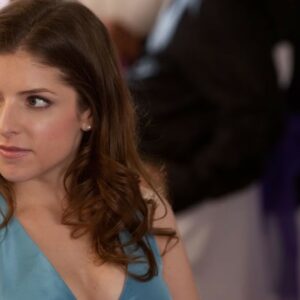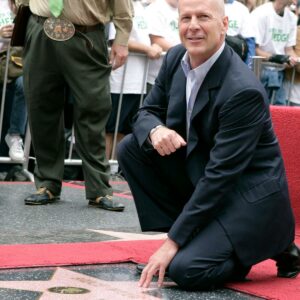Mary J. Blige, widely celebrated as the “Queen of Hip-Hop Soul,” is no stranger to commanding attention with her vocal prowess. However, her evolution as an actress has marked another significant chapter in her illustrious career. Through her nuanced portrayals in film, Blige has consistently brought a depth of emotion and raw authenticity to the screen, transforming into a powerful force that transcends beyond the music charts. From her breakout role in Mudbound to the thrillers and dramas that followed, Mary J. Blige’s film roles are resonant, inspiring, and rooted in profound life experiences. They are a reflection of her own resilience, and, more importantly, a beacon of hope for audiences who find strength in her characters.
1. The Evolution of a Cultural Icon
When Mary J. Blige made the leap from music to film, skeptics wondered if she could bring the same emotional depth to acting that she did to her music. After all, Blige’s music career has been nothing short of legendary. Her voice became the anthem for many who related to her lyrics about pain, survival, and triumph. But what many didn’t anticipate was how her acting performances would mirror that very journey.
Blige’s move into acting wasn’t just a career pivot; it was a natural progression for someone who has spent decades performing with raw emotion and vulnerability. Her transition to the silver screen brought with it the same authenticity that defined her music. Whether she’s portraying a mother fighting for her family in the rural South or a detective seeking justice, Blige’s characters are compelling because they are real. They struggle, they hurt, and they rise — much like the woman playing them.
2. The Breakout Role: Mudbound (2017)
Mudbound was the film that cemented Blige’s status as a serious actress. Directed by Dee Rees, this period drama set in post-World War II Mississippi tells the story of two families, one Black and one white, whose lives become intertwined through shared hardships. Blige plays Florence Jackson, a wife and mother enduring the brutality of racism and poverty in the segregated South. Her performance is hauntingly quiet but immensely powerful.
Florence Jackson is not a woman of many words, but Blige fills the silence with profound emotional weight. Every glance, every movement carries the burden of her character’s struggles. What’s remarkable about Blige’s portrayal is how she makes Florence a symbol of perseverance. Through Florence, Blige shows us that resilience is not loud or showy — it is a quiet, steadfast determination to endure. This resonates deeply with audiences who see themselves in Florence’s quiet strength.
Blige’s performance earned her critical acclaim, including Academy Award nominations for Best Supporting Actress and Best Original Song. But more than the accolades, it was the impact of her portrayal that stood out. Florence Jackson became a symbol of enduring strength for viewers, reminding us that even in the face of overwhelming adversity, we can survive and protect what matters most.
3. Body Cam (2020): A Voice for Justice
In Body Cam, Blige took on a role that spoke directly to the social issues of our time. Playing Detective Valerie Owens, Blige brought to life a character who is both fierce and compassionate. The film, a blend of horror and social commentary, centers on police brutality and systemic racism — themes that are all too familiar in America’s current landscape.
Detective Owens is a woman on a mission to uncover the truth behind a police-involved shooting. Blige’s portrayal is layered; she balances the weight of her professional responsibilities with her moral compass. The audience sees her character not just as a detective, but as a human being deeply affected by the injustices she encounters. Owens is driven by a sense of justice, and Blige’s portrayal taps into the emotional toll that such a pursuit can take on an individual.
What makes Blige’s performance in Body Cam so impactful is the way it gives voice to those who are often silenced. Her character is relentless in her quest for the truth, and through her, Blige reminds us of the importance of standing up against injustice, no matter the personal cost. It is a powerful message that resonates with viewers who are fighting their own battles for justice in the real world.
4. The Violent Heart (2020): The Complexity of Redemption
Blige’s role in The Violent Heart adds yet another dimension to her acting repertoire. In this film, Blige portrays a character grappling with her past while trying to move forward. The themes of redemption and personal growth are central to her storyline, and Blige captures these emotions with a raw, unfiltered honesty.
What stands out in this performance is Blige’s ability to convey vulnerability without losing her character’s inherent strength. Her portrayal reflects the complexity of human emotions — the desire to atone for past mistakes while still yearning for a better future. Blige’s character serves as a reminder that redemption is not a linear path, but a journey filled with setbacks and moments of clarity. This resonates with audiences who see their own struggles for personal growth reflected in her character.
Blige’s role in The Violent Heart is a testament to her range as an actress. She doesn’t shy away from the messy, complicated emotions that come with trying to rebuild one’s life. Instead, she embraces them, giving viewers a portrayal that is both relatable and deeply moving.
5. The Broader Impact: Blige’s Contribution to Representation
Mary J. Blige’s contributions to film go beyond her individual performances. By taking on roles that tackle issues of race, gender, and justice, Blige is contributing to a broader conversation about representation in Hollywood. Her characters are often Black women who are strong, complex, and resilient — qualities that are not always given the spotlight in mainstream media.
Blige’s work in film is helping to break down stereotypes and expand the narrative for Black women in Hollywood. She is showing audiences that Black women can be more than just side characters or tropes; they can be the heroes of their own stories. This is an empowering message for viewers who have long felt underrepresented in the media they consume.
Moreover, Blige’s performances are inspiring a new generation of actors and filmmakers to tell stories that reflect the diversity of the world we live in. By choosing roles that challenge the status quo, Blige is paving the way for more inclusive storytelling in Hollywood.
6. A Legacy of Empowerment
Mary J. Blige’s legacy in the film industry is one of empowerment. Through her characters, Blige gives voice to the struggles and triumphs of everyday people. Her performances are a reminder that we are all capable of overcoming the obstacles in our lives, no matter how insurmountable they may seem.
Blige’s ability to inspire and motivate audiences is rooted in her authenticity. She brings her own life experiences to her roles, and it is this authenticity that resonates with viewers. Blige’s characters are not just fictional creations; they are reflections of the human experience. And it is this connection to her audience that makes her performances so impactful.
7. Conclusion: The Power of Mary J. Blige’s Performances
Mary J. Blige’s transition from music to film has been nothing short of extraordinary. Her performances are more than just acting; they are a testament to her ability to inspire and empower. Through her roles, Blige has become a voice for justice, resilience, and personal growth. She has shown us that no matter where we come from, we have the power to rise above our circumstances and create a better future.
Blige’s impact on Hollywood extends far beyond her own career. She is helping to shape a more inclusive industry, one where stories about Black women are given the attention they deserve. And as she continues to take on new roles, there is no doubt that Mary J. Blige will continue to inspire and motivate audiences for years to come.





